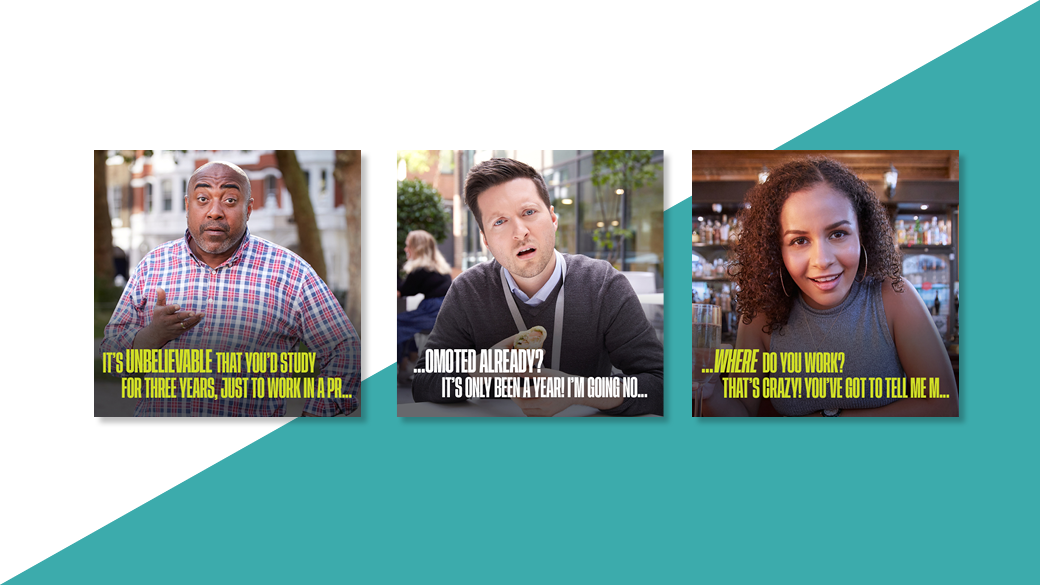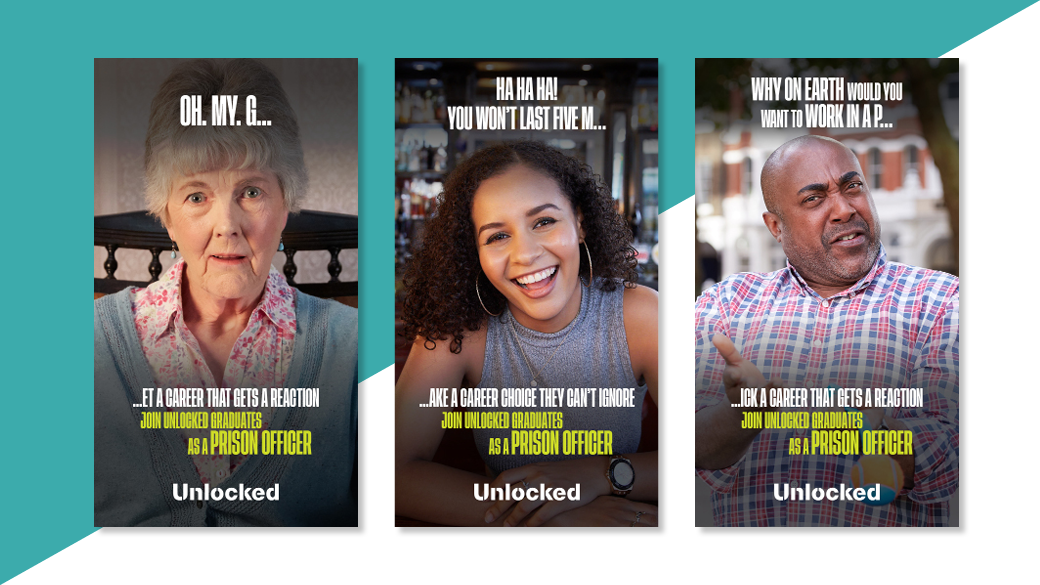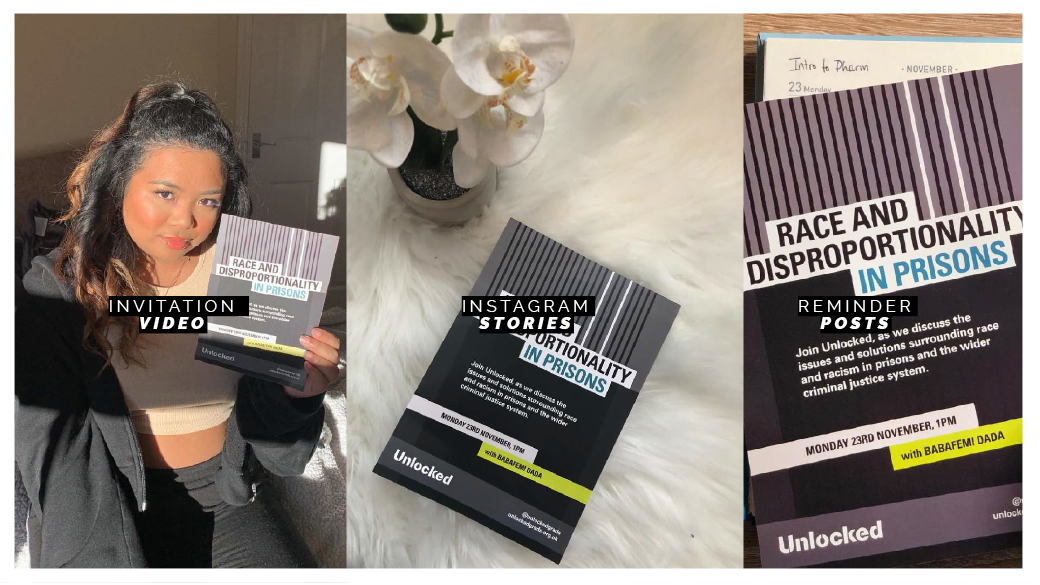What.The.F...

Integrated campaign
Unlocked are out to change society
Unlocked exist to tackle reoffending – a blight that wastes potential, fractures families and costs the UK billions of pounds. How? By encouraging high-potential graduates to become prison officers.
Working in a prison can seem scary, so we had a tough sell. What’s more, Unlocked wanted to diversify their intake, aiming for:
- more BAME candidates (25% from 18%)
- more men (aiming for 35% from 29%)
- more non-social science graduates
- more applications in general – raising ‘Registered to apply’ from 3,000 to 4,000.
A future in prison is a big decision. So, rather than deliver a campaign, we built a conversation.
We started by getting people’s attention
Our flagship video (which starred in last year’s RAD Awards) pulled no punches. It was honest about the ‘WTF?’ reactions our candidates would get when they announced an interest in a prison officer career.
We knew exactly who we were trying to reach
We segmented Unlocked’s audience into three personas: Active, Bold & Brave, and Go-Getters. We delved into what motivates them, and what kind of messages they’d respond to best and what media they engage most with. We also used our YWare data tool to find out where our hardest-to-reach candidates could be found.
And we told them a full story
Our ‘What the F…’ video kickstarted a fourstage approach that supported candidates from initial interest through to application.
Who the F***?
To compete for the attention of top grads, we started with high-impact work that turned heads and raised questions. Our teaser-style messages provoked questions like ‘Who are Unlocked?’ and ‘Who does this opportunity suit best?’
Channels: YouTube / Snapchat / Programmatic / Digital radio
Why the F***?
Why would I want to work in a prison? It’s a fair question. To answer it, we changed to a content-led approach that showed people ‘why’ this role matters and what difference they’ll make. Have a look here and here.
Channels: Content / Facebook / Events / Influencers / Joe Media / The Guardian
A closer look at influencers
To support their specific diversity aims, Unlocked ran a Race and Disproportionality in Prisons online event. We promoted this by partnering with seven BAME societies at key universities, and with Hype to involve social micro-influencers who brought a personal, passionate take on the issue. We supplied these influencers with personalised invites to the event to share on their Instagram and story feeds to encourage people to get involved in the conversation and find out more about Unlocked’s purpose.
What the F***?
What’s next? With candidates reaching a critical point in their decisions, we made sure we were in the right places to help them choose Unlocked.
Channels: Programmatic / Job boards / Social remarketing / Email
How the F***?
Aiming to tackle the drop-off in applications, this stage balanced emotive comms with information to support people through the recruitment process. This included ‘keep warm’ activity too. Have a look here, here and here.
Channels: Email / WhatsApp / UCG videos and top tips / Webinars
The results
Honest and hard hitting, the campaign smashed all its targets, delivering:
- 152% increase in adverts seen from digital activity
- 79,571 clicks on adverts – a 290% increase compared to last year
- 242% increase in ‘apply now’ clicks
- An astonishing 409,000 views on YouTube
- 91% increase in website traffic
Which resulted in:
- 27% applications from BAME candidates up from 18% last year
- 36% applications from men up from 29%
- 4,200 applications starts resulting in almost 2,785 completed applications
Our influencers proved to be particularly influential.
Our seven BAME society partners generated:
- 69 shared posts and messages
- Hundreds of clicks
And our five influencers reached 15,560 people, leading to:
- 1,349 engagements
- 23% post-engagement rate
And this was all achieved for £40,000 less than Unlocked’s spend the previous year. Clearly it doesn’t have to cost the world to convince people to change it.

